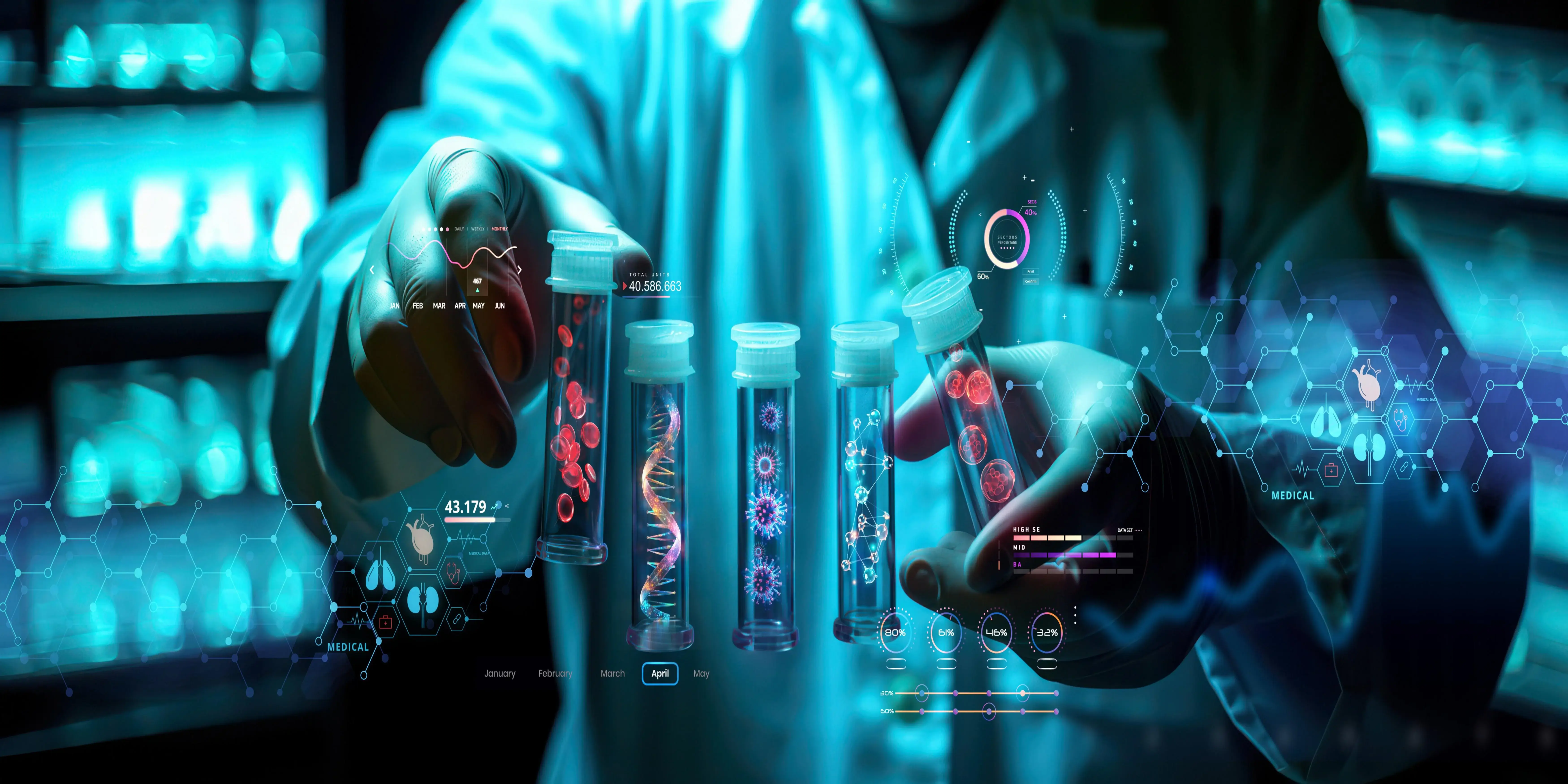Clinfinte Solution: Biobanking is the process of collecting, storing, and sharing human biological samples and data for research purposes. Biobanking involves ethical and regulatory considerations to protect the rights and interests of the people who donate their samples and data. Some of these considerations are:
How to obtain informed consent from the donors
Obtaining informed consent from donors for biobanking is crucial to ensure that they understand and voluntarily agree to the purpose, risks, and benefits of participating in biobank research. Here's a step-by-step guide to obtaining informed consent:
(I). Develop a Detailed Consent Form:
Create a well-structured consent form that clearly outlines the following information:
• Purpose of biobanking: Explain the rationale behind the biobank, including the types of samples and data collected, forms with research potential, and the benefits of the biobank. society.
• Risks and benefits of participation: Discuss the potential for biological data to be misused or what will happen to the transmission model as risks related to biobanking come up. Highlight additional advantages like self-medication and supportive care.
• Collection and storage of samples: Describe the sample collection methods, storage processes, and storage time. Ensure donors that their samples will be stored with the highest level of privacy and security.
• Data privacy and confidentiality: Explain how personal data and information will be collected, saved, and used. Highlight the measures that are in place to protect donor privacy and confidentiality.
• Right to withdraw: Declare that those donors have the right to withdraw their consent at any time, and explain how to do so.
• Contact information: Provide contact information for the biobank or research teams in charge of the biobank, so that donors can contact them with concerns or queries.
(II). Engage in a Thorough Consent Discussion:
• Meet with potential donors individually: Dedicate sufficient time to each donor to discuss the consent form in detail. Ensure they understand the information presented and have the opportunity to ask questions.
• Use plain language: Avoid technical jargon and medical terminology. Use clear and concise language that is easily understandable by laypersons.
• Encourage questions and clarifications: Welcome questions and provide thorough explanations to address any concerns or doubts the donor may have.
• Assess comprehension: Verify that the donor has understood the key information presented in the consent form.
(III). Obtain Written Consent:
• Provide a copy of the consent form: Allow donors to keep a copy of the signed consent form for their records.
• Witness the signing process: Obtain signatures from the donor and a designated witness, ensuring both parties have understood the consent process.
(IV). Document the Consent Process:
• Maintain detailed records: Keep meticulous records of the consent process, including the date of consent, the name of the person obtaining consent, and any additional documentation or clarifications provided.
• Adhere to data protection regulations: Comply with applicable data protection laws and regulations regarding the storage and handling of consent forms and related documentation.
By following these steps, biobanks can effectively obtain informed consent from donors, ensuring that they are fully informed and voluntarily participate in biobanking initiatives.
How to Ensure the Privacy and Confidentiality of the Donors
Protecting the privacy and confidentiality of donors is paramount for biobank research. Here are essential measures to safeguard donor information:
(I). Establish and Implement Clear Policies:
• Develop a comprehensive privacy and confidentiality policy: Outline clear guidelines for handling donor personal information and data. This policy should address collection, storage, access, use, disclosure, and disposal of donor-related information.
• Train staff on privacy and confidentiality: Educate all staff involved in biobank operations on the importance of privacy and confidentiality. Ensure they understand the policies and procedures in place to protect donor information.
• Implement data security measures: Protect electronic data with strong encryption protocols, access controls, and regular security audits.
• Secure physical storage: Store physical samples and records in secure facilities with restricted access and environmental controls to prevent damage or loss.
(II). Limit Access to Donor Information:
• Restrict access to authorized personnel: Only grant access to donor information to authorized personnel with a legitimate need to know. Implement role-based access controls to limit access to specific data sets.
• Obtain consent for data sharing: Obtain explicit consent from donors before sharing their personal information or data with third parties for research purposes.
• Anonymize or de-identify data: Whenever possible, anonymize or de-identify data to minimize the risk of re-identification of individual donors.
• Regularly review access logs: Monitor access logs to detect any unauthorized access attempts and take appropriate corrective actions.
(III). Implement Data Breach Prevention Measures:
• Conduct regular risk assessments: Regularly assess the risks to donor privacy and confidentiality. Identify potential vulnerabilities and implement appropriate mitigation measures.
• Have a data breach response plan: Develop a comprehensive data breach response plan to effectively address any unauthorized access to donor information.
• Educate staff on data breach prevention: Train staff to recognize and report potential data breaches promptly.
• Conduct regular security audits: Conduct regular security audits to identify and address any weaknesses in the biobank's security infrastructure.
(IV). Monitor Compliance and Address Violations:
• Establish a compliance monitoring program: Implement a system to monitor compliance with privacy and confidentiality policies and procedures.
• Investigate potential violations: Promptly investigate any suspected violations of privacy and confidentiality policies. Take appropriate disciplinary action against any individuals found responsible for violations.
• Educate donors about privacy practices: Inform donors about the biobank's privacy practices and how they can protect their own information. Provide contact information for inquiries or concerns.
By implementing these comprehensive measures, biobanks can effectively safeguard donor privacy and confidentiality, ensuring that their personal information and data are protected from unauthorized access or misuse.
How to respect the autonomy and dignity of the donors
Respecting the autonomy and dignity of donors is crucial for maintaining ethical biobanking practices. Here are essential measures to ensure that donors have control over their participation and the use of their samples and data:
(I). Clear Communication and Consent:
• Provide clear and accessible information: Provide donors with comprehensive information about the biobanking process, including the purpose of research, potential risks and benefits, and their rights as participants.
• Obtain informed consent: Obtain explicit and informed consent from donors before collecting their samples or data. Ensure they understand the implications of their participation and can make informed decisions.
• Explain the right to withdraw consent: Clearly inform donors that they have the right to withdraw their consent at any time without penalty or prejudice.
• Establish a withdrawal procedure: Implement a clear and accessible process for donors to withdraw their consent. Make it easy for them to communicate their decision to the biobank.
(II). Respecting Donor Decisions:
• Honor withdrawal requests promptly: Upon receiving a withdrawal request, promptly cease the collection, use, or storage of the donor's samples and data.
• Destroy or de-identify withdrawn samples and data: If a donor requests the destruction of their samples or data, securely destroy or de-identify them to protect the donor's anonymity and prevent future use.
• Remove withdrawn data from research: If a donor withdraws their consent, remove their data from any ongoing research projects and refrain from further use.
• Provide documentation of withdrawal: Provide donors with documentation confirming that their withdrawal request has been processed and their samples and data have been handled accordingly.
(III). Ongoing Communication and Updates:
• Keep donors informed: Periodically update donors about the biobank's research activities and findings. Provide them with opportunities to ask questions and stay engaged with the research process.
• Seek additional consent for new research: If the biobank seeks to use donor samples or data for new research purposes, obtain additional informed consent from the donors involved.
• Address donor concerns: Promptly address any concerns or questions raised by donors regarding the use of their samples or data.
• Provide contact information: Ensure donors have easy access to contact information for biobank staff or designated representatives to address any queries or concerns.
By implementing these measures, biobanks can demonstrate their commitment to respecting the autonomy and dignity of donors, fostering trust and promoting ethical biobanking practices.
How to Promote Justice and Equity in Biobanking
Promoting justice and equity in biobanking requires a multifaceted approach that addresses issues of access, representation, and benefit-sharing. Here are some key steps to achieve this goal:
(I). Enhance Access and Representation:
• Diversify recruitment strategies: Expand recruitment efforts to reach underrepresented communities and ensure that the biobank reflects the diversity of the population.
• Address barriers to participation: Eliminate socio-economic, cultural, or logistical barriers that may hinder participation from diverse groups.
• Promote community engagement: Collaborate with community organizations and leaders to build trust, address concerns, and encourage participation.
• Ensure representation in governance: Include diverse perspectives in biobank governance structures to ensure that the needs and interests of all communities are considered.
(II). Foster Equitable Benefit-Sharing:
• Develop benefit-sharing agreements: Establish clear and transparent agreements with participating communities outlining how they will benefit from the research outcomes.
• Prioritize community-driven research: Support research projects that directly address the health needs and priorities of the communities from which samples are collected.
• Share research findings and tools: Provide communities with access to research findings, tools, and resources to improve their health outcomes.
• Support capacity building: Invest in training and education programs to empower communities to participate in research and benefit from its outcomes.
• Promote equitable access to healthcare: Advocate for policies that ensure equitable access to healthcare services for all communities, including those that have participated in biobanking research.
(III). Address Discrimination and Exploitation:
• Implement anti-discrimination policies: Establish clear policies against any form of discrimination or exploitation in biobanking practices.
• Provide culturally sensitive consent processes: Ensure that consent procedures are culturally sensitive and tailored to the needs of diverse communities.
• Protect privacy and confidentiality: Implement robust privacy and confidentiality measures to protect donor information from unauthorized access or misuse.
• Ensure fair compensation: Provide fair compensation or incentives for donors who participate in biobanking research, considering the potential risks and benefits.
• Establish oversight mechanisms: Implement independent oversight mechanisms to monitor biobanking practices and ensure compliance with ethical standards.
By implementing these measures, biobanks can promote justice and equity in their operations, ensuring that the benefits of biobanking research are shared fairly and that all communities are treated with respect and dignity.
How to Govern and Oversee Biobanking Activities
Effective governance and oversight of biobanking activities are crucial to ensure the ethical conduct of biobanking research, protect the rights and interests of donors, and maintain public trust. Here are essential elements of a robust governance and oversight framework:
(I). Establish Clear Policies and Guidelines:
• Develop comprehensive policies and guidelines: Formulate clear and comprehensive policies and guidelines that govern all aspects of biobanking activities, including sample collection, storage, data management, research protocols, and ethical considerations.
• Ensure transparency and accessibility: Make these policies and guidelines publicly accessible to researchers, biobank managers, ethical committees, and potential donors.
(II). Implement a Multilayered Governance Structure:
• Establish a governing board: Create a governing board with diverse expertise to oversee the biobank's operations, set strategic directions, and ensure compliance with ethical standards.
• Formulate scientific advisory committees: Establish scientific advisory committees composed of experts in relevant fields to review research proposals, assess scientific merit, and provide guidance on ethical considerations.
• Establish ethics review committees: Formulate ethics review committees with expertise in bioethics and research ethics to review research protocols, assess the risks and benefits to donors, and ensure compliance with ethical principles.
(III). Foster Collaboration and Communication:
• Promote collaboration among stakeholders: Encourage collaboration and communication among researchers, biobank managers, ethical committees, and community representatives to share expertise, address concerns, and promote best practices.
• Establish clear communication channels: Establish clear and accessible communication channels to ensure that information is readily available to all stakeholders, including donors, researchers, and the public.
(IV). Implement Regular Review and Audits:
• Conduct regular audits: Conduct regular internal and external audits to assess compliance with policies and procedures, identify potential risks or areas for improvement, and ensure the ethical conduct of biobanking activities.
• Review and update policies: Periodically review and update policies and guidelines to reflect changes in scientific knowledge, ethical standards, and regulatory requirements.
• Maintain detailed records: Maintain detailed records of all biobanking activities, including sample collection, storage, data management, research protocols, and ethical reviews.
(V). Promote Transparency and Public Engagement:
• Publicly disclose biobanking activities: Make information about the biobank's activities, including research projects, sample collection procedures, and donor rights, publicly available.
• Encourage public participation: Engage with the public through educational programs, community outreach initiatives, and open forums to foster understanding and address concerns.
• Respond to public inquiries: Promptly and effectively respond to public inquiries and concerns regarding biobanking activities, demonstrating transparency and accountability.
By implementing these elements of effective governance and oversight, biobanks can maintain ethical standards, protect donor rights, and build public trust, ensuring that biobanking research contributes to the advancement of medical knowledge and the improvement of human health.



